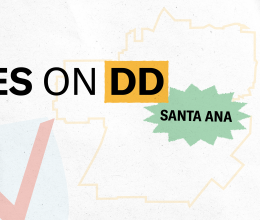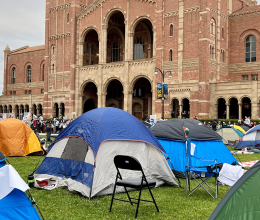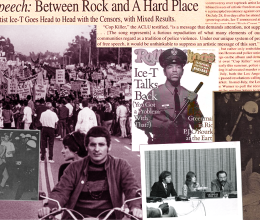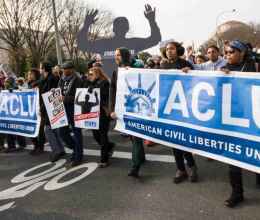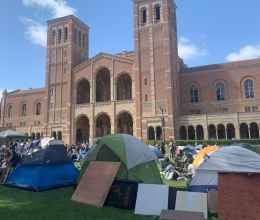Iranian American Refugees Will Continue Fight Over Contributions to Opposition Group
LOS ANGELES, Calif. – Seven Iranian American refugees have conditionally pled guilty to providing material support to an Iranian opposition group known as the the Mujahedin-e Khalq (MEK), in an agreement that enables them to appeal the ruling on the grounds that their prosecution violates the U.S. Constitution — an argument that the trial judge indicated should be decided by a higher court. Their challenge focuses on the fact that the MEK does not threaten U.S. national security, in large part because the U.S. government has itself provided material support to the same group, as court documents obtained in the case revealed.
The April 29, 2009 pleas by the six men and one woman were made reluctantly after an eight-year legal battle, and only on condition that the government drop over 100 other charges to which they had pleaded not guilty and allow them to pursue their argument that they should not be prosecuted for contributing to the MEK. That organization — the main Iranian opposition group — supports a free, non-nuclear Iran, has provided valuable information to the U.S. and has even worked to make the U.S. government’s “surge” in Iraq a success.
“It boggles the mind that that these seven refugees would be charged with providing material support for a so-called terrorist organization, when the U.S. government has supported the same organization for years,” said Ahilan Arulanantham, Director of Immigrants’ Rights and National Security of the ACLU of Southern California, which represents one of the seven defendants. “In the interests of justice, the federal government should drop its prosecution of this case, which is based on a law that denies due process to those accused of supporting designated terrorist organizations.”
The U.S. government officially designated the MEK as a terrorist organization in 1997 — thereby criminalizing almost all assistance rendered to the group — and has maintained that designation despite the objections of more than 228 members of Congress. Senior Clinton administration officials acknowledged at the time that the designation of the MEK was a political, "goodwill gesture" to the so-called moderate Iranian president Mohammad Khatami. The European Union and the United Kingdom initially followed the United States and made the same designation, but recently withdrew their designation after considering overwhelming evidence that the MEK does not threaten their national security. Under the U.S.’s anti-terrorism law, however, the seven defendants were not permitted to argue at a trial that the MEK was not a threat to American national security. Currently, the United States and Iran are among the few government entities to continue to officially classify the MEK as a terrorist group.
The seven refugees, some of whom were personally subjected to incarceration, persecution and torture before fleeing Iran, raised money at the Los Angeles Airport and within Los Angeles's Iranian community, and sent some of it to the MEK. The funds were used for a variety of humanitarian items, such as the purchase of shoes and other aid to Iranian refugees in Iraq, as well as the promotion of speech such as television time for ads about Iran and the publication of the group’s newspaper.
In 2002, the seven refugees successfully challenged the legitimacy of the government's prosecution, but the charges were later reinstated by the U.S. Court of Appeals. Evidence released in court recently showed, among other things, that the U.S. government supported a camp in Iraq where the MEK leadership currently resides, and provided consular services to the residents there.
“The American people are well aware that the U.S. government supports those who oppose the tyrannical Iranian regime,” said Nasser Shareef, President of the California Society for Democracy in Iran. “Under these circumstances, it is indeed ironic that the U.S. government has prosecuted these seven individuals for bravely supporting resistance against the Iranian regime, whose hands are stained with the blood of tens of thousands of Iranians at home as well as hundreds of innocent people outside Iran, including many Americans in Lebanon, Iraq and Afghanistan.”
A sentencing hearing is presently scheduled for August at which the issues of the proper designation of the MEK, the oppression and torture that some of the defendants endured in Iran, and the current working relationship between the MEK and the U.S. government (despite the continued designation) will be presented to the court.
